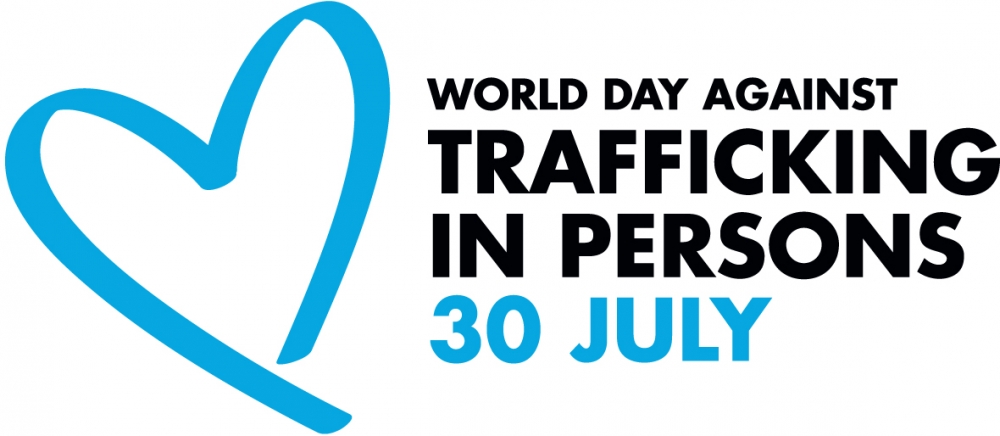UN World Day against Trafficking in Persons

Today, 30th July 2018, marks the UN World Day against Trafficking in Persons. Human trafficking is a crime that exploits people for purposes including forced labour and sex. The International Labour Organisation estimates that 21 million people around the world are victims of forced labour; however, these are not all victims of trafficking.
It is not known how many people around the world are victims of trafficking, but it is estimated to be millions. Trafficking is a global problem, with every country in the world being affected either as a country of origin, transit or destination.
António Guterres, UN Secretary-General, commented:
“Human trafficking takes many forms and knows no borders. Human traffickers too often operate with impunity, with their crimes receiving not nearly enough attention. This must change"
UNICEF and Inter-Agency Coordination Group against Trafficking (ICAT) announced yesterday that 28% of identified tracking victims are children, with this rising to 64% in sub-Saharan Africa and 62% in Central America and the Caribbean.
Similarly, woman and girls are disproportionately affected by trafficking, accounting for 71% of all victims.
Alarmingly, UNICEF and ICAT believe that the true number of trafficked children is much higher than current data suggests as children are often not identified as victims of trafficking. Due to fear, lack of information, stigma and mistrust of authorities many trafficked children do not come forward.
Refugees, migrants and displaced children are notably vulnerable to trafficking, especially when they are escaping war and violence or pursuing better education and livelihood opportunities. Many children will move on their own, making them highly vulnerable to violence, abuse and exploitation.
UNICEF Executive Director Henrietta Fore noted:
“Trafficking is a very real threat to millions of children around the world, especially to those who have been driven from their homes and communities without adequate protection”
There is often a lack of sustainable solutions for child victims of trafficking as many child protection systems lack guardianship. Children are often placed in shelters where they risk further traumatisation and victimisation. Boys face additional challenges due to gender norms.
This year the United Nations Office on Drugs and Crime (UNODC) has chosen the theme of ‘responding to the trafficking of children and young people’ as the day’s focus. The campaign draws attention to the millions of children affected by trafficking, the issues they face and the possible actions to safeguard children.
Join us for the 10th Annual AIDF Global Summit in Washington D.C on 5-6 September to discuss key global issues.
If you’d like to stay informed on the latest updates in aid and development, please sign up for the AIDF newsletter.
Image credit: UNODC













